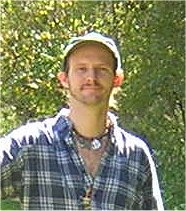Your religion is full of myths.
Now that I have your attention, let me explain further:
Many of the religious stories we take for granted are myths. Now, many people assume that myths are simply "fairy tales" -- that they are pointless made-up stories. However, this is not the case.
"Myth" is a writing style -- like a fable, or a letter, or a poem, or a parable. In fact, parables and legends are very similar to myths. A myth is simply a stylized story which is meant to teach us a spiritual truth.
Myths are not meant to be taken literally, however. They use symbols and metaphors to convey their message. Often the symbols used in myths are the same as those used in symbolic dreams, and rightly so: they both come from the sub-concious mind. Their message is hidden just below the surface.
For example, in the Gilgamesh story,Gilgamesh faces one of the greatest troubles of his life as his good friend Enkidu lies dying. He seeks out Utanapishtim, the oldest man in the world, for help. The old man had once built a great boat to escape the floods which destroyed the world. The old man was successful in helping Gilgamesh find a remedy which could save his friend.
In many myths water represents the world -- the current state of affairs of people. "Troubled waters" represent problems with the state of things -- in fact, we still use the term today! In this story, Gilgamesh faces his own "troubled waters", so he seeks help from someone who has defeated similar problems. Perhaps this is a message for us, the readers. Maybe, the author(s) of the Gilgamesh story want us to understand that we can get help with our crises from others who have faced similar problems.
In other myths a person may command the "troubled waters" to become silent -- which they do. This shows us that this person is able to solve the problems simply by speaking or teaching. These myths hold greater meaning than they, at first, appear to. A spiritual leader may walk upon the waters, or build a great boat to remain alive as Utanapishtim did in the story above. By rising above the waters the leader is able to keep from drowning in the troubles of his time, as we are supposed to do – being the audience for the myth.
Still other myths may teach us to avoid getting bogged down in the trappings of tradition. A spiritual teacher may attend a festival, when suddenly those holding the festival run out of wine. Well, according to tradition, the festival may require wine. And so the teacher may instruct them to use water instead – the water becoming wine. The purpose of this story is not a literal miracle where the water turns into fermented grapes, but rather that the water symbolically becomes as wine. The point of the myth is that the celebration of the festival is important, not whether there is enough wine to go around or not.
A multitude may approach a teacher to hear his words of wisdom, and those with the teacher may notice that they are unable to fee them all. The teacher may simply state “I will satisfy them”. The multitude leave satisfied, not because the teacher miraculously turned into a taco stand, but because he gave them what they came seeking: spiritual food. Again, the point of the myth is lost if it’s take literally, but becomes apparent when we examine the symbols.
Every faith contains myths. These are the stories that help illumine our spiritual lives. They teach us about our spiritual teachers, our relationship to the world around us, and about ourselves. If we only dig at them a bit more deeply to understand the symbols and metaphors contained within them we can gain a much better spiritual understanding.




